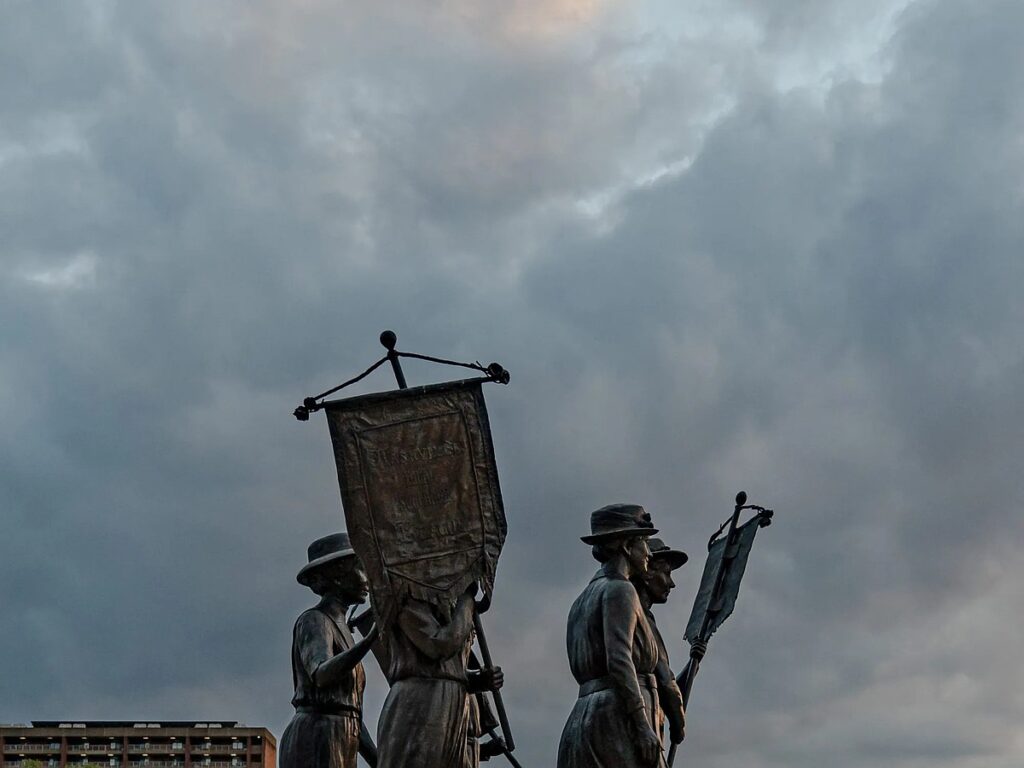The article discusses a significant moment in Nashville’s history, focusing on the ratification of the 19th Amendment granting women the right to vote, which was clinched by a pivotal vote from Rep. Harry Burn in 1920. Fast forward to August 2023, the topic resurfaced dramatically when a leader from the Communion of Reformed Evangelical Churches (CREC) suggested repealing the 19th Amendment, sparking concerns about the church’s growing influence on politics, especially in Nashville.
The CREC, known for its patriarchal views and desire to integrate biblical principles into government, has been gaining traction, with notable members discussing household voting—where a household casts a single vote rather than individuals voting separately. Leaders, including Brooks Potteiger, advocate for a return to traditional roles, arguing that households should vote together, with men typically leading. This offers a glimpse into their broader desire for a theocratic government.
Responses to this have been mixed, with criticisms from more traditional evangelical sectors who view the ideas as misaligned with equality principles. The article highlights a faction within the CREC that seeks to normalize radical views about women’s rights and governance, reflecting a troubling shift in American political discourse. Various sources point to the acceptance of these ideas as indicative of a larger trend towards conservative ideals, especially as political winds shift post-2020 elections, including recent victories like the Supreme Court’s abortion ruling.
Groups committed to the protection of voting rights, such as the League of Women Voters, remain staunchly opposed to any attempts to roll back voting rights achieved over decades. The article concludes with a cautionary note about the increasing mainstreaming of once-radical views in political circles, signaling a significant and concerning shift in contemporary American society.



